CSV File is a widely used flat file format that stores tabular data in plain text using comma delimiters, enabling easy data exchange between systems, applications, and spreadsheet software.
Top companies trust Airbyte to centralize their Data








This includes selecting the data you want to extract - streams and columns -, the sync frequency, where in the destination you want that data to be loaded.
The Airbyte Open Data Movement Platform
The only open solution empowering data teams to meet growing business demands in the new AI era.
Leverage the largest catalog of connectors
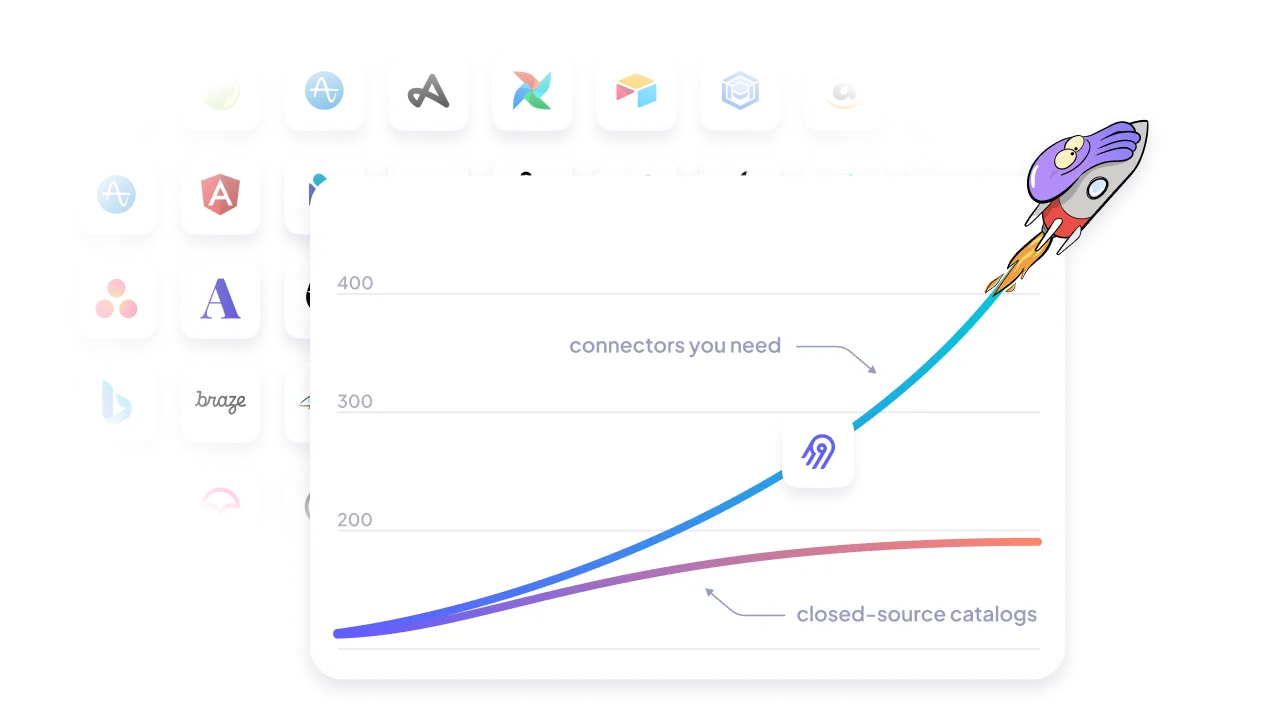
Cover your custom needs with our extensibility

Free your time from maintaining connectors, with automation
- Automated schema change handling, data normalization and more
- Automated data transformation orchestration with our dbt integration
- Automated workflow with our Airflow, Dagster and Prefect integration
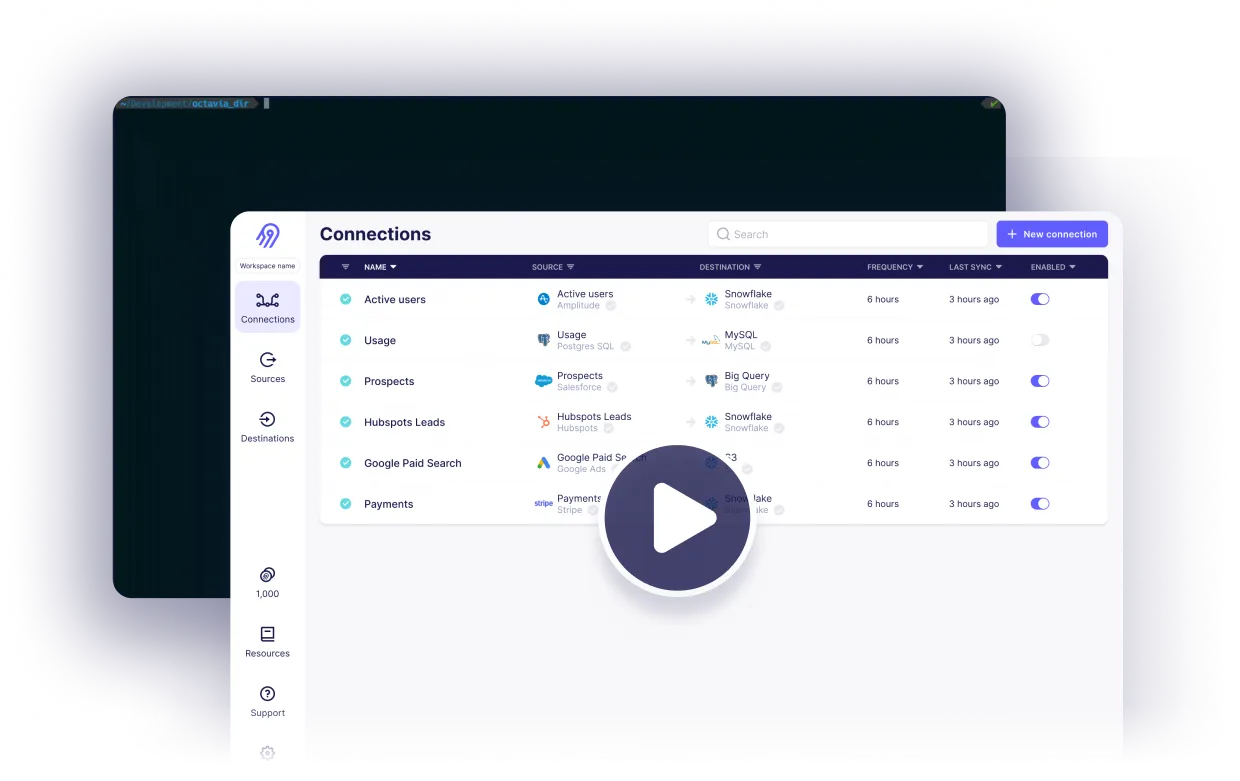
Reliability at every level
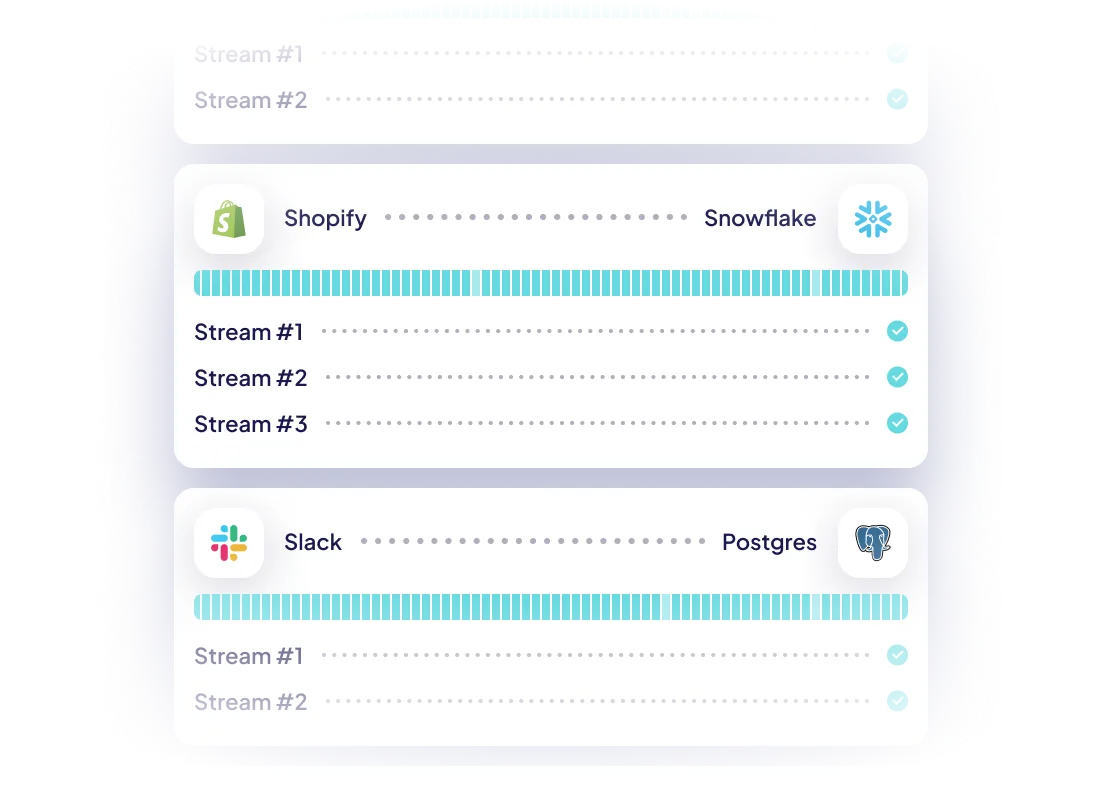



Airbyte Open Source


Airbyte Cloud


Airbyte Enterprise

Why choose Airbyte as the backbone of your data infrastructure?
Keep your data engineering costs in check
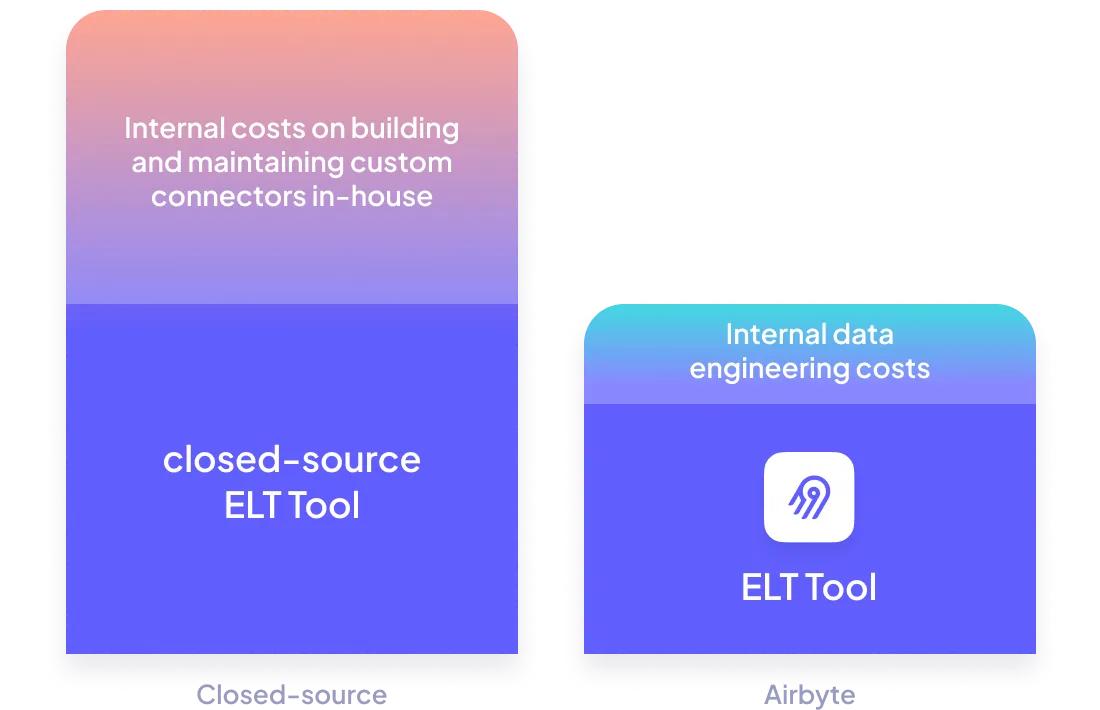
Get Airbyte hosted where you need it to be
- Airbyte Cloud: Have it hosted by us, with all the security you need (SOC2, ISO, GDPR, HIPAA Conduit).
- Airbyte Enterprise: Have it hosted within your own infrastructure, so your data and secrets never leave it.
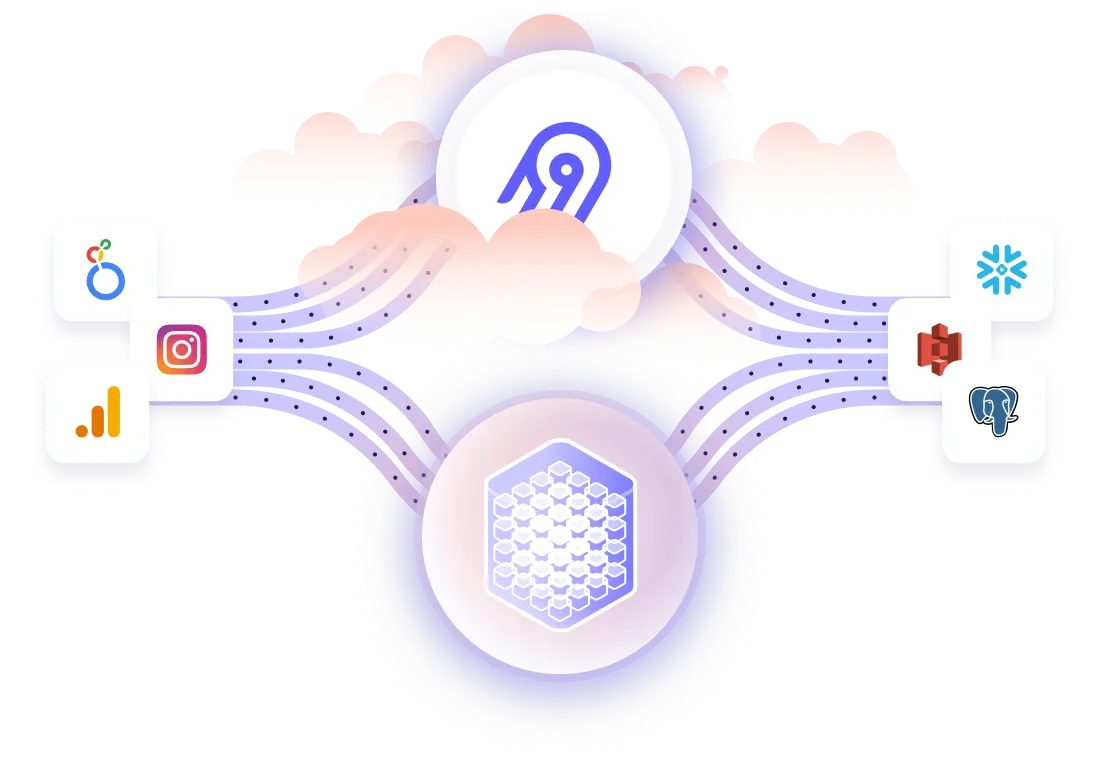
White-glove enterprise-level support
Including for your Airbyte Open Source instance with our premium support.
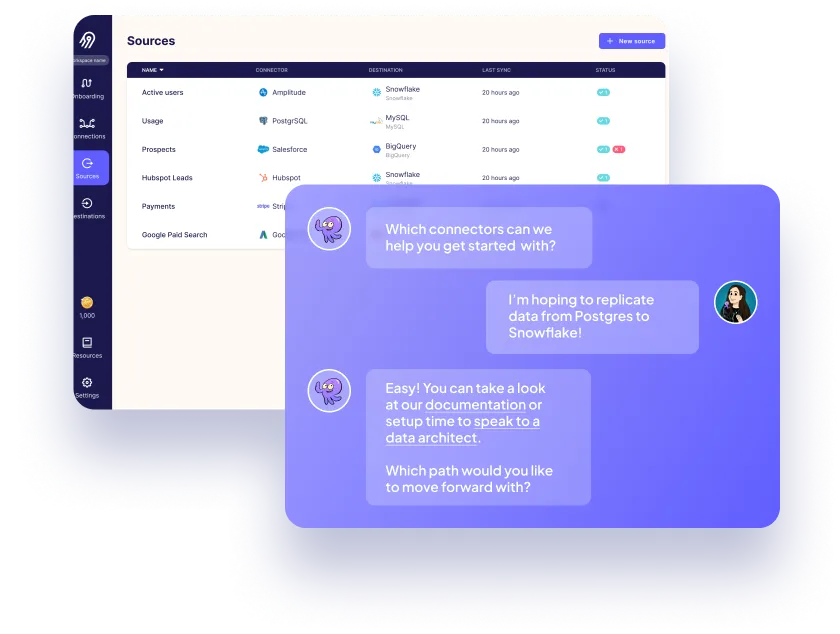
Airbyte supports a growing list of destinations, including cloud data warehouses, lakes, and databases.



Fnatic, based out of London, is the world's leading esports organization, with a winning legacy of 16 years and counting in over 28 different titles, generating over 13m USD in prize money. Fnatic has an engaged follower base of 14m across their social media platforms and hundreds of millions of people watch their teams compete in League of Legends, CS:GO, Dota 2, Rainbow Six Siege, and many more titles every year.
Ready to get started?
FAQs
What is ETL?
ETL, an acronym for Extract, Transform, Load, is a vital data integration process. It involves extracting data from diverse sources, transforming it into a usable format, and loading it into a database, data warehouse or data lake. This process enables meaningful data analysis, enhancing business intelligence.
A CSV (Comma Separated Values) file is a type of plain text file that stores tabular data in a structured format. Each line in the file represents a row of data, and each value within a row is separated by a comma. CSV files are commonly used for exchanging data between different software applications, such as spreadsheets and databases. They are also used for importing and exporting data from web applications and for data analysis. CSV files can be easily opened and edited in any text editor or spreadsheet software, making them a popular choice for data storage and transfer.
CSV File gives access to various types of data in a structured format that can be easily integrated into various applications and systems.
What is ELT?
ELT, standing for Extract, Load, Transform, is a modern take on the traditional ETL data integration process. In ELT, data is first extracted from various sources, loaded directly into a data warehouse, and then transformed. This approach enhances data processing speed, analytical flexibility and autonomy.
Difference between ETL and ELT?
ETL and ELT are critical data integration strategies with key differences. ETL (Extract, Transform, Load) transforms data before loading, ideal for structured data. In contrast, ELT (Extract, Load, Transform) loads data before transformation, perfect for processing large, diverse data sets in modern data warehouses. ELT is becoming the new standard as it offers a lot more flexibility and autonomy to data analysts.






.svg)
.svg)












